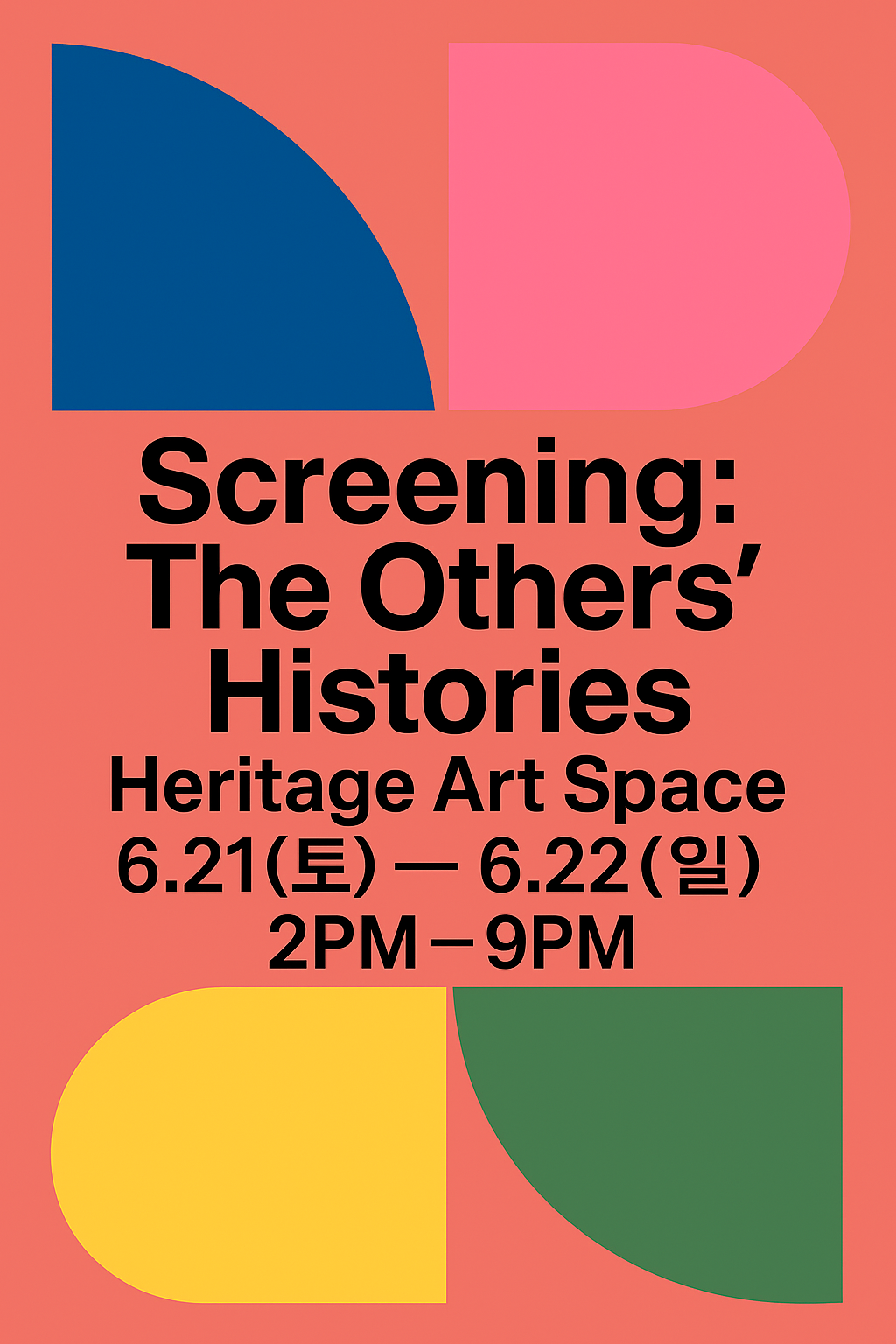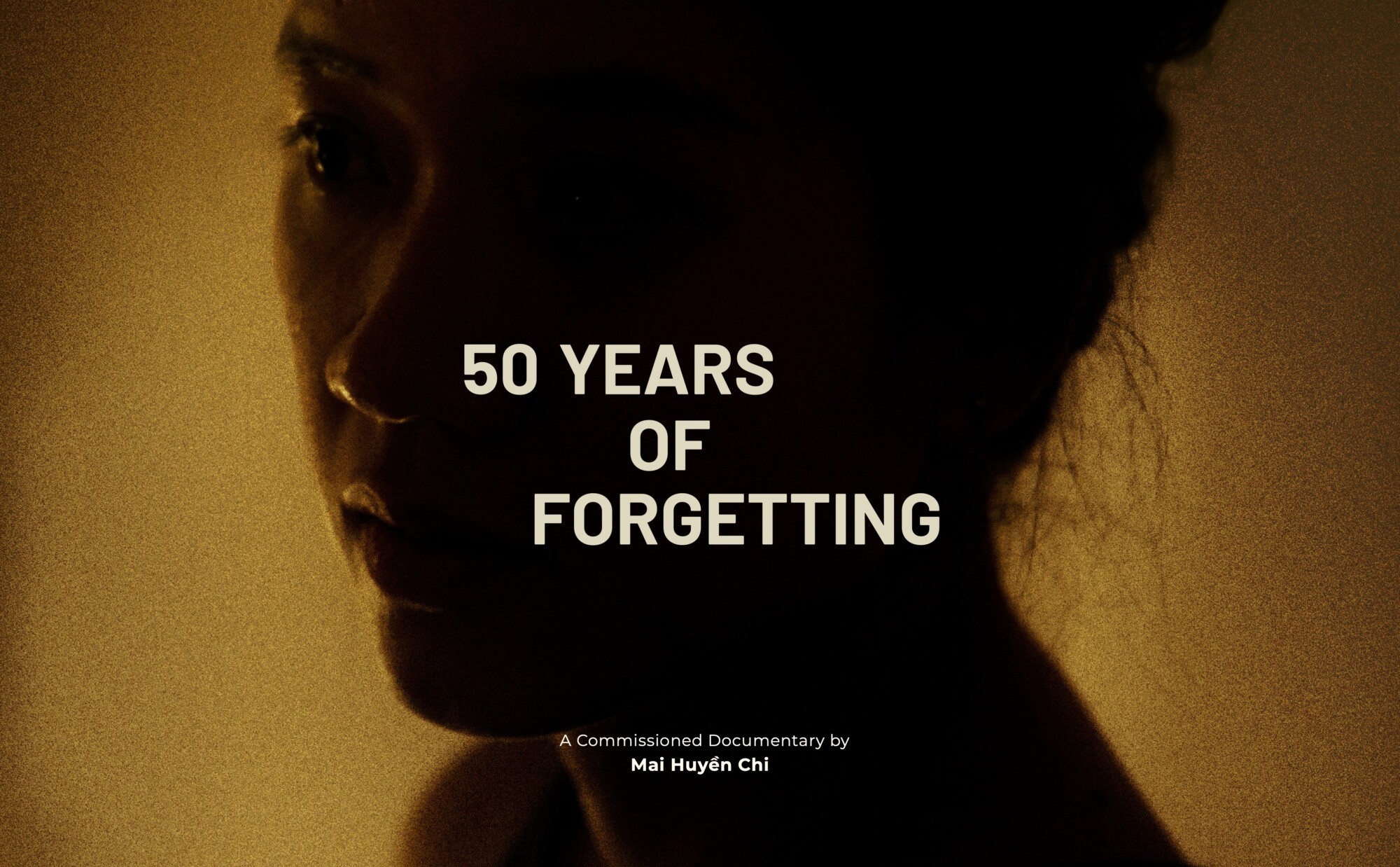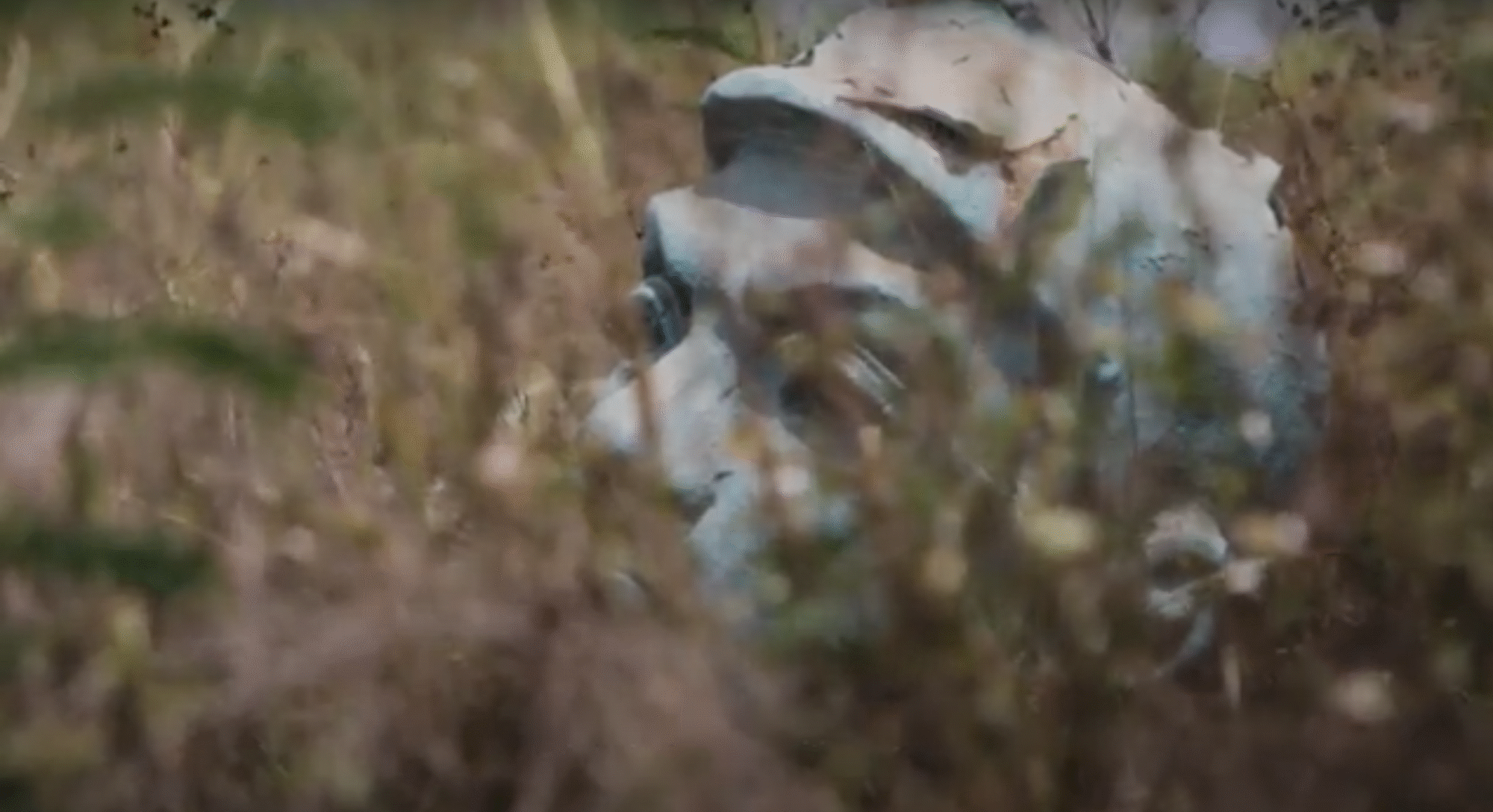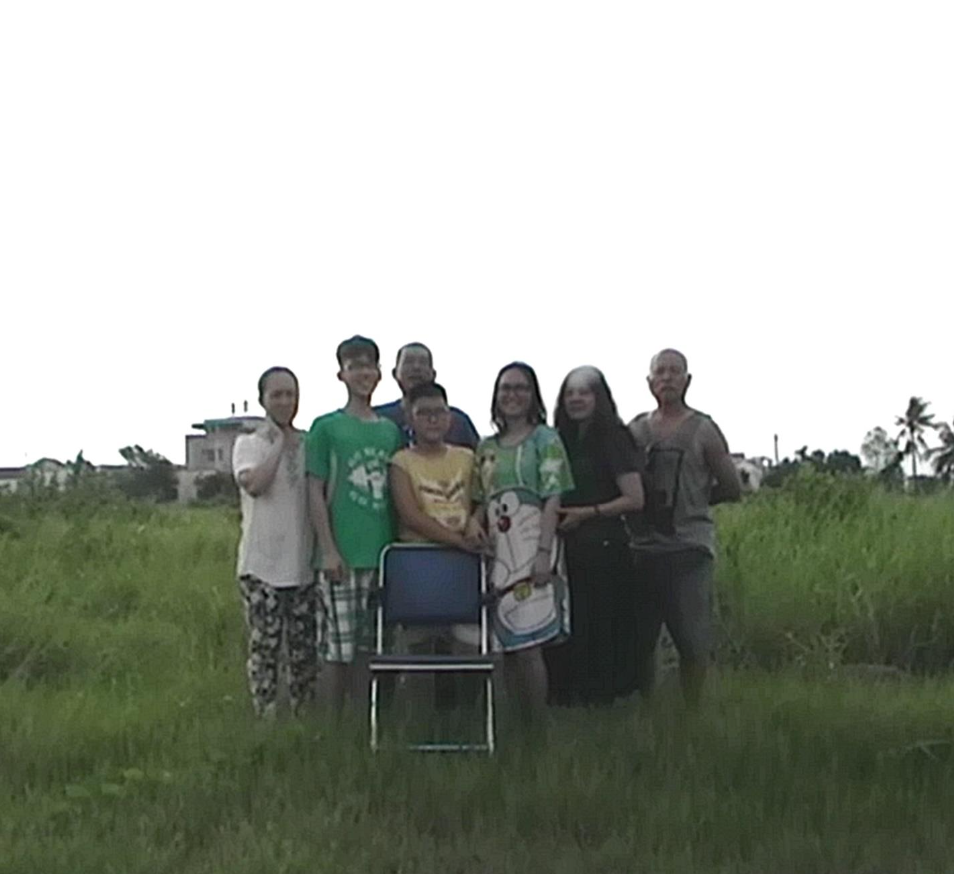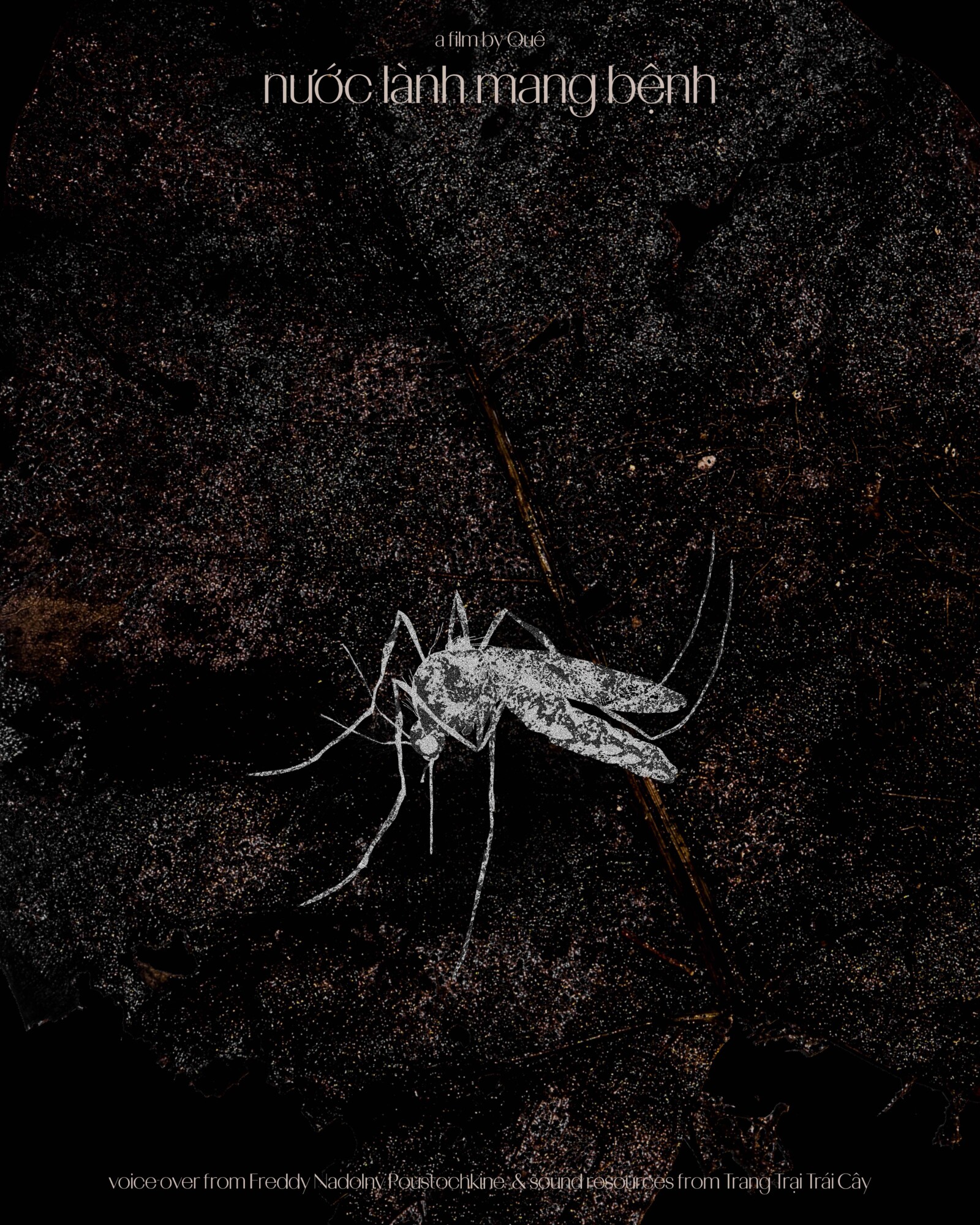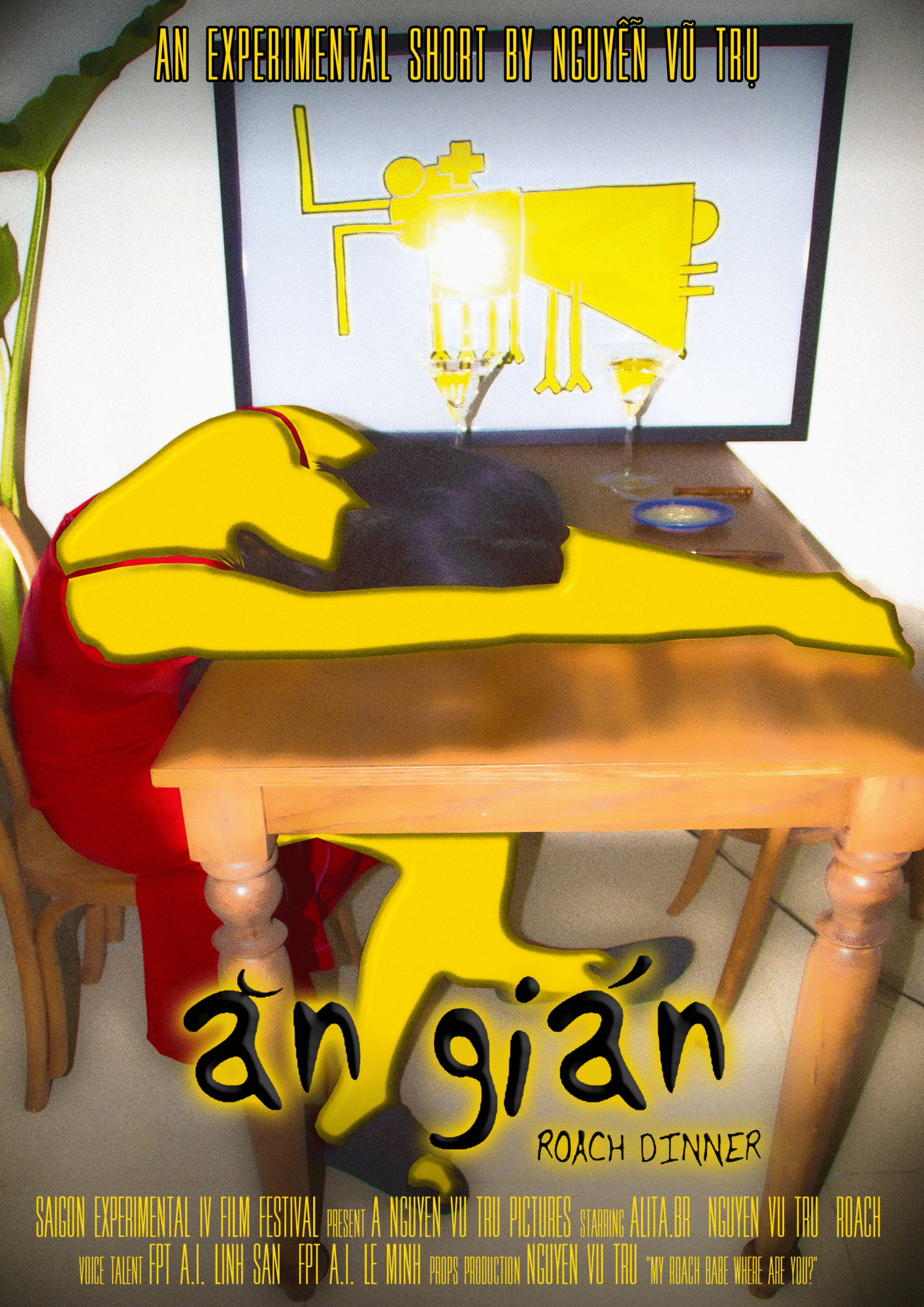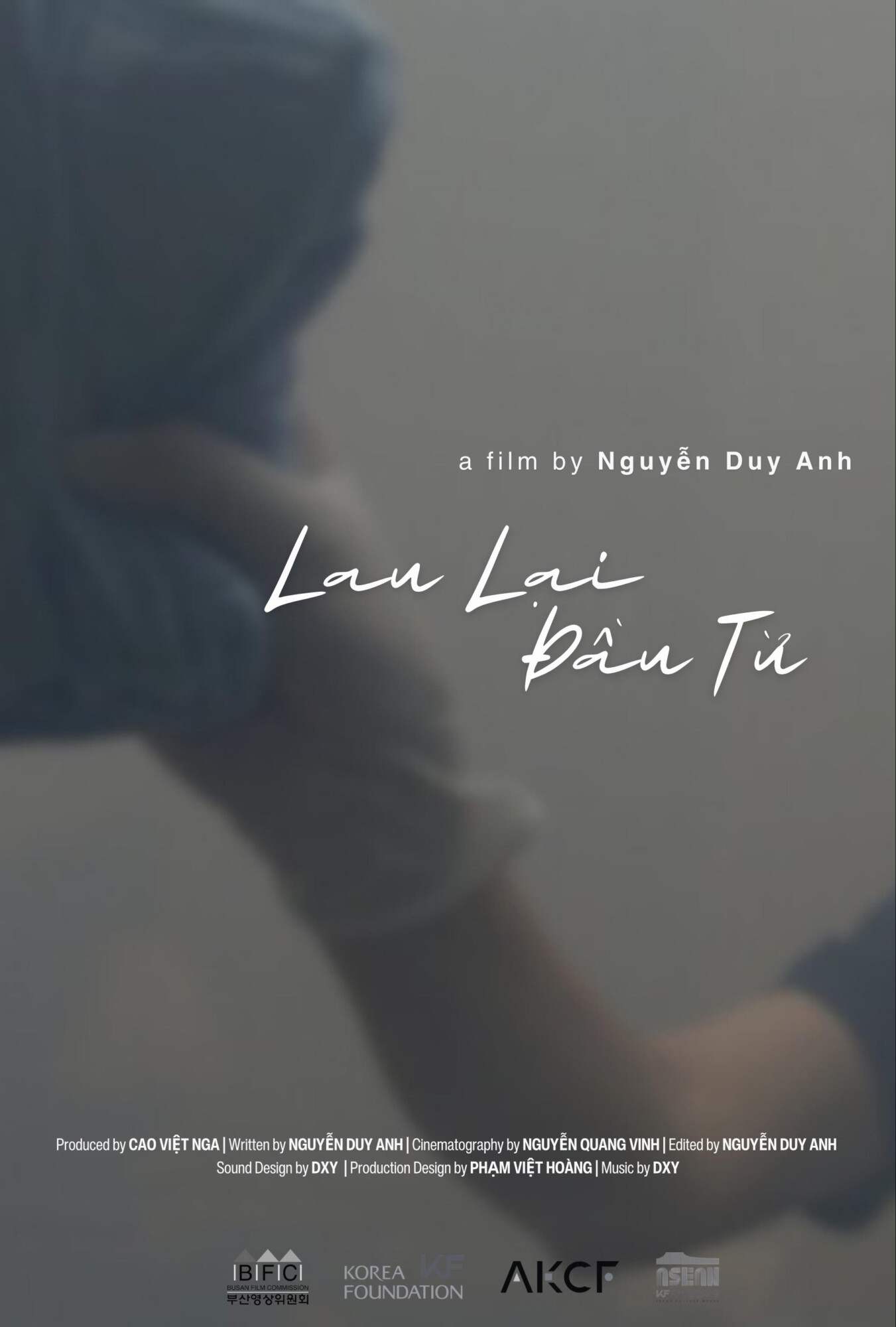[WESS WEEK] Screening:The Others’ Histories by Heritage Art Space
Screening: 6.20(금) ― 6.22(일), 2pm ― 9pm
서울시 종로구 율곡로 187 (연건동, 토토빌딩), 4층
*스크리닝은 오후 2시, 4시 30분, 7시에 시작됩니다. 자유롭게 입퇴장 가능하지만, 전체 관람을 원하시면 시작 시간에 맞춰 와주세요.
*입장은 8시 마감됩니다.
Zoom Talk: 6.21(토), 2pm
참여 감독들과 헤리티지 아트 스페이스 큐레토리얼 팀이 함께하는 온라인 토크 프로그램입니다.
*Zoom Link(click here)
4월 30일은 베트남의 ‘통일 기념일’로 지정되어 있습니다. 국가가 오랜 투쟁 끝에 쟁취한 승리, 자유, 민족적 자긍심의 서사를 강화하는 날입니다. 그러나 1975년 사이공 함락 이후 베트남을 떠난 디아스포라에게는 ‘국가적 증오의 날’로 기억되는 때이기도 합니다. 전쟁이 끝난 지 50년이 지났음에도 베트남은 그 땅과 사람들의 마음 속에 울리는 여진으로 가득합니다. 서로 상반되는 극단적 기억들 사이에서 개인적 회상을 통해 자기만의 해석으로 공식적인 기록에 균열을 내는 존재들을 살핍니다.4월 30일은 베트남의 ‘통일 기념일’로 지정되어 있습니다. 국가가 오랜 투쟁 끝에 쟁취한 승리, 자유, 민족적 자긍심의 서사를 강화하는 날입니다. 그러나 1975년 사이공 함락 이후 베트남을 떠난 디아스포라에게는 ‘국가적 증오의 날’로 기억되는 때이기도 합니다. 전쟁이 끝난 지 50년이 지났음에도 베트남은 그 땅과 사람들의 마음 속에 울리는 여진으로 가득합니다. 서로 상반되는 극단적 기억들 사이에서 개인적 회상을 통해 자기만의 해석으로 공식적인 기록에 균열을 내는 존재들을 살핍니다.
Curatorial Note
The Others’ Histories
팜 웃 꾸옌(Phạm Út Quyên), Heritage Art Space Team
Heritage Art Space는 WESS WEEK 2025에서 베트남 현대 미술 작가들을 소개하는 스크리닝 프로그램 기획을 맡게되어 기쁘게 생각합니다.
베트남 현대 미술의 풍부하고 섬세한 면모를 이 짧은 프로그램 안에 모두 담아내기는 쉽지 않았지만, 아이디어를 구상하던 중 마침 4월 30일 통일절의 축제 분위기 속에 있었던 경험이 하나의 출발점이 되었습니다. 전쟁이 끝난 지 50년이 지났음에도, 그 흔적은 여전히 사람들의 삶과 일상 곳곳에 스며들어 현대 사회를 형성하고 있다는 사실을 자연스럽게 떠올리게 되었습니다.
이러한 국경일은 흔히 국가가 승리와 자유, 오랜 투쟁 끝에 얻은 자긍심의 대서사를 강조하는 순간이 되곤 합니다. 그러나 1975년 사이공 함락 이후 베트남을 떠난 디아스포라에게 이 날은 ‘국치의 날’로 기억되는 상실의 시간이기도 합니다. 이처럼 극단적인 기억 사이에는, 수많은 개인적 기억과 단편적인 역사들, 조용히 살아가는 삶들이 존재합니다. 이들은 종종 국가의 공식 기록에 저항하거나, 그 서사를 복잡하게 만들거나 확장시키는 존재들입니다.
이번 상영 시리즈는 바로 그 작은 틈과 깊이 안의 개인적 서사에 초점을 맞춥니다. 교과서나 기념식이 아니라, 기억과 정체성, 현재를 고민하는 현대 미술가들의 목소리를 통해 전해지는 이야기들입니다.
예컨대 마이 후옌 찌(Mai Huyền Chi)는 한때 민족의 영웅으로 불렸지만 가족의 기억 속에서조차 거의 지워진 자신의 할아버지의 흔적을 더듬습니다. 또한, 판 안(Phan Anh)은 세상을 떠나는 할머니의 마지막 길을 배웅하며 그녀의 삶을 상상하고 재구성함으로써 말해지지 않았던 유산을 기립니다. 응우옌 티 타인 마이(Nguyễn Thị Thanh Mai)는 전쟁터로 떠난 남편을 기다리며 남겨진 여성들—조용한 증인이자 감정의 상처를 지닌 이들—의 이야기를 모읍니다. 이들은 전쟁과 직접적이거나 간접적인 관계를 지닌 젊은 세대이며, 자신의 가족, 국가의 과거, 그리고 자기 자신과 화해하려는 여정을 예술을 통해 펼쳐갑니다. 그들의 작업은 공식 역사에서 쉽게 누락되는 기억의 친밀한 조각들을 비춥니다.
또, 꿰(Quế)의 작업에서는 인간적 감정이 배제된 관점을 통해 바라본 집과 동네의 이야기가 있고, 응우옌 부 쭈(Nguyễn Vũ Trụ)는 바퀴벌레라는 환상적 존재와 팬데믹 속 현실 사이에서 인간 생명의 연약함을 성찰합니다. 응우옌 주이 안(Nguyễn Duy Anh)은 도시 곳곳에 존재하지만 쉽게 잊히고 무시되며 보이지 않는 존재로 여겨지는 여성 청소 노동자들의 이야기를 다룹니다. 사람들은 종종 과거에 매이거나 미래를 좇지만, 현재의 순간은 쉽게 간과됩니다. 이 작가들은 그런 ‘지금’에 머무르기를 권합니다. 어쩌면 과거나 미래는 환상일 뿐, 우리가 진정으로 소유하는 것은 오직 연속되는 현재의 순간들이며, 그 흐름이 우리를 만들어가는 것인지도 모릅니다.
당-국가 체제를 유지하고 있는 베트남처럼, 국가가 개인을 하나의 국민 정체성, 단일한 역사 서사, 통일된 미래 비전에 맞추려 하는 사회에서, 이번 상영 프로그램은 그 흐름에 대한 반론이자 대안의 제안입니다. 그것은 다양한 기억과 불안, 희망을 품은 개인들의 삶을 비춥니다. 바로 그들이 진짜로 한 국가라는 직물을 짜는 존재들이기 때문입니다.
이 시리즈는 WESS와 Heritage Art Space가 2년간 나눈 대화의 결과물입니다. 이는 일시적이지만 지속적인, 큐레토리얼 팀의 조용하고 깊은 문제의식을 반영하며, 동시에 참여 작가들이 던지는 목소리와 질문들과도 긴밀히 공명합니다. 이 프로그램은 결코 베트남 현대 미술을 대표하려 하지 않습니다. 그런 작업은 하나의 프로그램으로는 결코 가능하지 않기 때문입니다. 다만, 우리가 함께 작업하며 마주한 예술가들의 고요하지만 강한 목소리를 통해, 일상에 뿌리내린 그러나 훨씬 더 큰 울림을 가진 이야기들을 조금이나마 엿볼 수 있기를 바랍니다.
Mai Huyền Chi
<50 Years of Forgetting>, 2025
00:47:38
<50 Years of Forgetting>은 전쟁 영웅이었던 할아버지의 삶과 죽음을 추적하는 여정을 떠난 베트남 영화감독 마이 후옌 찌(Mai Huyền Chi)의 이야기를 따라갑니다. 개인적 탐색으로 시작된 이 여정은 곧 기억과 상실, 그리고 전쟁이 남긴 긴 그림자에 대한 조용한 성찰로 이어집니다. 영화는 베트남 북부, 중부, 남부를 가로지르며 진행되며, 전쟁을 겪은 이들의 이야기를 듣고, 흩어진 기억의 조각들을 모으며, 그들 마음속에 남은 흔적들을 좇습니다. 그 여정 속에서 감독은 자신 또한 전쟁의 고통과 가족 안에 남은 슬픈 기억을 잊고 있었고, 무심했으며, 제대로 알지 못했다는 사실을 깨닫게 됩니다. 영화는 친밀한 만남과 길게 이어지는 침묵을 통해, 한 나라가 전쟁을 잊을 때 무엇이 사라지고 무엇이 남는지를 탐색합니다. 그리고, “당신이 직접 겪지는 않았지만, 물려받은 전쟁을 기억한다는 것은 어떤 의미인가?”에 대해 묻습니다.
Nguyễn Thị Thanh Mai
<The Remained One>, 2019
00:18:41
<The Remained One>은 북부 베트남 전쟁 참전용사들의 아내들이 들려주는 이야기를 담은 작품입니다. 화자이자 감독인 그는 전쟁 속에서 드러나는 인간 존재와 운명의 연약함을 마주하게 됩니다. 영상은 역사 속 일부 인물들이 공식 기록에서 거대한 기념비로 세워졌음을 비추며, 감독은 이러한 기념비들을 영화 곳곳에 배치하고, 그 이면에 존재하는 미시적 서사 조각들을 통해 또 다른 이야기를 전하고자 합니다.
Phan Anh
<The Most Romantic Walk>, 2018
00:25:44
<The Most Romantic Walk> 는 어머니의 기억을 통해 고인이 된 그의 할머니 이야기를 담고 있습니다. 작품은 할머니의 마지막 날, 병원 대기실에서 그가 걸었던 길을 재현하려는 시도를 보여줍니다.
Quế
<Healthy Water With Diseases>, 2024
00:07:00
<Healthy Water With Diseases>는 하노이 쭉박 지역(Truc Bach) 쩌우롱 거리( Chau Long Street) 23번지 주택의 역사와 그 맥락을, 인도차이나 전쟁 시기 주민들의 이주와 정착 행태를 바탕으로 탐구한 작품입니다. 단편적으로 남아 있는 기록들로 인해, 감독은 끊임없이 가족을 포함한 이웃들과 인터뷰를 진행하며 대부분의 이야기를 수집해 나갔습니다. 촬영 중 증조할머니의 죽음을 계기로, 감독은 그가 찾고자 했던 명확한 해답은 결코 도달할 수 없는 것임을 자각하게 됩니다. 결국, 남은 것은 집 안의 모기를 통해 표출되는 전쟁에 대한 집착이었음을 이야기합니다.
Nguyễn Vũ Trụ
<Roach Dinner>, 2022
00:04:00
<Roach Dinner>는 바퀴벌레를 실존적 사유의 대상으로 삼은 한 젊은 베트남 커플의 저녁 식사 대화를 다룬 작품입니다.
“2021년, 사이공에서 이어진 장기 봉쇄 기간 동안 나는 대부분의 시간을 방 안에 머물렀다. 아파트 창문 너머로 보이는 거리는 사람의 흔적 없이 고요하고 텅 비어 있었다. 새로운 얼굴도, 나눌 이야기들도 없었다. 창문을 열어 환기를 시킬 때마다 어김없이 바퀴벌레 한 마리가 날아들었다. 그 고립된 시간 속에서 나는 존재의 본질에 대해 고민하게 되었고, 바퀴벌레와 싸우며 인간으로 존재한다는 것이 무엇인지 되묻기 시작했다. 누군가와 연결되고, 나를 자극해줄 인간 뮤즈를 갈망했지만, 대신 나의 동반자가 된 것은 끈질기고 집요하게 공간을 침범한 바퀴벌레들이었다. 그들은 내 공간과 의식을 점령했고, 어느새 새로운 창작의 뮤즈가 되었다. 그렇게 만들어진 이야기 속에서 나는 질문을 던진다. 이 등장인물들은 여전히 인간인가? 멸종의 위기를 앞둔 지금, 인간은 결국 바퀴벌레로 진화하게 되는 것일까?” – 작업 노트 중-
Nguyễn Duy Anh
<Lau Lại Đầu Từ>, 2024
00:18:00
이른 아침 방송 프로그램에서는 여성 기술 가사노동자들이 출연한 토크쇼가 방영됩니다. 뿌연 유리와 습기 찬 화면 너머로 섬세한 손길들이 조용한 노동의 안무를 펼칩니다. 공적과 사적, 현실과 가상을 흐리는 <Lau Lại Đầu Từ>는 도시와 그 안의 보이지 않는 노동자들에게 보내는 러브레터입니다.
[WESS WEEK] Screening:The Others’ Histories by Heritage Art Space
Screening: 2025.6. 20(Fri) ― 6. 22(sun), 2pm ― 9pm
4F, Toto Building (187 Yulgok-ro, Yeongeon-dong, Jongno-gu, Seoul)
*Screenings start at 2 PM, 4:30 PM, and 7 PM. Feel free to drop in or out anytime, but if you would like to watch the full program, please arrive on time.
*Entry closes at 8:00 pm.
Zoom Talk: 6.21(sat), 2pm
Join us for an online-talk with the directors and the Heritage Art Space curatorial team.
*Zoom Link(click here)
April 30 is designated as Reunification Day(Ngày Thống nhất) in Vietnam. It is a day that reinforces the national narrative of victory, freedom, and pride won after a long struggle. Yet for the diaspora who fled Vietnam after the 1975 fall of Saigon, it is also remembered as a National Day of Hatred. Even fifty years after the war’s end, echoes of conflict continue to reverberate through the land and in the hearts of its people. This screening focuses on individuals who, positioned amidst the conflicting extremes of memories, fracture the official record through their personal recollections and reinterpretations.
Curatorial Note
The Others’ Histories
Phạm Út Quyên, Heritage Art Space Team
Heritage Art Space is honored to receive an invitation to curate a screening program introducing Vietnamese contemporary artists at WESS WEEK 2025.
Vietnam contemporary art is vast and rich in nuance, yet the program’s time frame is modest. While brainstorming ideas, we found ourselves surrounded by the festive atmosphere of the April 30th holiday—Vietnam’s Reunification Day. It struck us how, even 50 years after the Vietnam War ended, its echoes still resound through the land and the people in myriad ways, shaping contemporary life in visible and invisible threads.
National holidays like these are often moments when the state reinforces grand historical narratives—stories of victory, freedom, and national pride after decades of struggle. Yet for many others, particularly the Vietnamese diaspora who left after the fall of Saigon in 1975, it is remembered as a day of loss—“the day of national hatred.” Between these opposing poles lies a wide spectrum of human experience: personal memories, fragmented histories, and quiet lives that resist, complicate, or expand the official record.
This screening series focuses on those smaller, deeply human stories—told not through textbooks or ceremonies, but through the voices of contemporary artists grappling with memory, identity, and the present.
There are the story of Mai Huyền Chi, who searches for the erased traces of her grandfather—once hailed a national hero, yet whose personal history has been almost entirely erased from her family’s memory; or of Phan Anh, who reimagines his grandmother’s life as a way to honor her untold legacy during his final journey to bid her farewell; or Nguyễn Thị Thanh Mai’s collection of the quiet, often overlooked stories of the women who “remained” after their husbands went to war—silent witnesses carrying the emotional scars of conflict. These are the voices of a younger generation—many with personal ties to the war—who seek reconciliation with their families, their country’s past, and themselves. Their art opens up intimate corners of memory that history books often leave out.
There are also story of a house, a neighborhood—seen through Quế’s inhuman or detached perspective; the struggle to survive within the strange reality of the pandemic, the reflection on the fragility of human life through both realistic and fantastical imaginings of cockroaches by Nguyễn Vũ Trụ; or stories of women who work as cleaners in the city—present everywhere, yet so often forgotten, ignored, treated as invisible: existing, yet not quite seen, explored in the work by Nguyễn Duy Anh. While people often dwell on the past or chase the future, they tend to overlook the present. These artists, however, invite us to remain grounded in the unfolding moments of now. Perhaps, from another perspective, the past and future are only illusions—and the only thing we truly possess is an endless chain of present moments, one after another, shaping who we are.
In a country—particularly like Vietnam that still follows a party-state model—where the state apparatus often seeks to align each individual with the nation-state, unifying its people under a singular national identity, a shared version of history, and a common vision for the future, this screening program offers a counterpoint. It reflects the diverse patchwork of memories, anxieties, and hopes held by individuals whose lives form the real fabric of a nation.
This series is the fruit of a two-year collaboration between WESS and Heritage Art Space. It reflects the curatorial team’s ongoing, quiet, and deep concerns—temporary yet persistent—and resonates closely with the voices and questions raised by the artists themselves. The series doesn’t aim to represent Vietnamese contemporary art—such a task would be impossible in one small program, or any single program at all. Instead, it offers a glimpse into the quiet intensity and resilience of the artistic voices we work closely with—voices grounded in the everyday, and yet echoing into something much larger.
Mai Huyền Chi
50 Years of Forgetting, 2025
00:47:38
50 Years of Forgetting follows Mai Huyền Chi – a Vietnamese filmmaker, as she sets out to trace the life and death of her grandfather, a war hero. What begins as a personal search soon unravels into a quiet reckoning with memory, grief, and the long shadows of conflict. The film is a journey across the three regions of Vietnam. The filmmaker listens to stories, gathers fragments of memory, and searches for the traces that remain in the minds of those who lived through the war. Slowly, she comes to realize that she herself has forgotten, has been indifferent, and has remained unaware of the pain of war and the sorrowful memories within her own family. Through intimate encounters and lingering silences, the film explores what is lost when a country forgets — and what remains. It asks: What does it mean to remember a war you never lived, but inherited?
Mai Huyền Chi
50 Years of Forgetting, 2025
00:47:38
50 Years of Forgetting follows Mai Huyền Chi – a Vietnamese filmmaker, as she sets out to trace the life and death of her grandfather, a war hero. What begins as a personal search soon unravels into a quiet reckoning with memory, grief, and the long shadows of conflict. The film is a journey across the three regions of Vietnam. The filmmaker listens to stories, gathers fragments of memory, and searches for the traces that remain in the minds of those who lived through the war. Slowly, she comes to realize that she herself has forgotten, has been indifferent, and has remained unaware of the pain of war and the sorrowful memories within her own family. Through intimate encounters and lingering silences, the film explores what is lost when a country forgets — and what remains. It asks: What does it mean to remember a war you never lived, but inherited?
Nguyễn Thị Thanh Mai
The Remained One, 2019
00:18:41
The Remained One is a compilation of stories and narratives from the wives of war veterans in Northern Vietnam. Through the film, the fragility of human conditions and fate during wartime is revealed. Some figures in the official historical records have been immortalized as grand monuments. The director places these monuments throughout the film while narrating a different story composed of micro-narrative fragments.
Phan Anh
The Most Romantic Walk, 2018
00:25:44
The Most Romantic Walk depicts the stories of the artist’s late grandmother through his mother’s recollection as well as the attempt to recreate the walk he had in the hospital waiting room on her last day.
Quế
Healthy Water With Diseases, 2024
00:07:00
Healthy Water With Diseases revealed the history and historical context of house number 23 on Chau Long Street, Truc Bach, Hanoi, through the lens of migration and residential patterns during the Indochina wars. The research process unfolded in a layered and open-ended manner, due to the fragmented and incomplete nature of historical records. The director conducted ongoing interviews with neighbors around the house, including members of his own family. During the filming, the death of his great-grandmother marked a turning point, leading to the realization that the definitive answers he sought would remain elusive. What ultimately remained was his quiet obsession with the war, embodied in the presence of mosquitoes inhabiting the space of the house.
Nguyễn Vũ Trụ
Roach Dinner, 2022
00:04:00
Roach Dinner depicts a dinner conversation of a young Vietnamese couple, with with roaches as their existentialist food-for-thought.
“During the prolonged COVID-19 lockdown in Saigon, I found myself confined mostly to my room. From my apartment window, I watched the streets below—empty and silent, devoid of human presence. There were no new faces to meet, no new stories to share. Each time I opened the window to let in fresh air, a cockroach would inevitably fly in. In those isolated moments, I grappled with the nature of existence, pondering what it means to be human while battling these persistent roaches. I longed for connection, for a human muse to inspire me. But instead, my companions became the roaches—intrusive, resilient, unavoidable. These creatures took over my space and my mind, transforming into my new muses. In the stories I created, I began to question: Are the characters still human? Facing the threat of extinction, are humans destined to evolve into roaches?” – From the artist’s statement –
Nguyễn Duy Anh
Lau Lại Đầu Từ, 2024
00:18:00
The early morning program is airing a talk show featuring female technology domestic workers. Through fogged glass and damp screens, delicate hands perform a silent choreography of labor. Blurring public and private, real and virtual, Lau Lại Đầu Từ is a love letter—to the city and its unseen workers.

